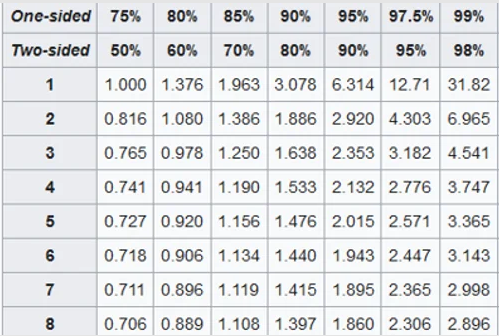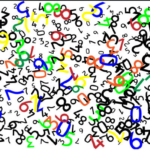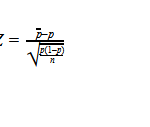My purpose of paper is to show that sometimes correlation between parameters can be by chance and not by causality.
Definition:
Pearson correlation coefficient (usually called merely ‘correlation coefficient’) measures a linear relationship between two variables. It’s worth noticing Pearson correlation coefficient reflects an extent of linear relationship (not exponential or quadratic relationship).
The range of the correlation coefficient is [-1.0,…,1.0], the more the coefficient close to 1 or -1 the more linear relationship found between two variables. If the coefficient is zero or nearby then no linear correlation is detected.
Use case from video compression
You are required to estimate a linear relationship between a scene complexity (e.g. the percentage of edge pixels) and the generated frame size, where an encoder is configured with constant QP (otherwise if Rate Control is applied frame sizes are similar in magnitudes. In case with Rate Control it’s worth checking a relationship between video quality and complexity).
You expect the following: more complex scene more bits are produced. To check the relationship you choose 10 clips (or scenes), the complexity of each scene is pre-computed. Then you apply the encoder on each excerpt and calculate Pearson correlation coefficient and plot the scatter graph (schematically):

Let’s assume that the correlation coefficient r = 0.5.
Now the question is raised – maybe, no linear relation exists and we get r=0.5 by chance?
What’s a confidence (or a probability) of getting r=0.5 provided that no linear relationship exists?
Or in statistics jargon, is the correlation coefficient r=0.5 is significant or not?
Significance testing of Pearson correlation coefficient is based on t-student distribution with (n-2) degrees of freedom, where ‘n’ is the number of samples (in our case 10):

We test two hypothesis:
- Null Hypothesis: complexities and frame sizes are linearly unrelated, i.e. r = 0
- Alternative Hypothesis: complexities and frame sizes are in someway related, r ≠ 0 (two-sided) or r>0 (one-sided, i.e. a positive linear relationship conjectured).
So, for our case with r=0.5 and n = 10 (8 degrees of freedom) we get t-value ~1.64.
According to t-student table for 8 degrees of freedom the confidence level that there is a linear relationship between complexities and frame sizes is around 85%:

Usually the confidence of 85% is not sufficient to reject the null hypothesis. It’s common rule: the null hypothesis can be rejected if the confidence is above 95%
Even if we consider the alternative hypothesis with positive linear relationship the confidence is ~93%.
Conclusion
The confidence 85% of a linear relationship between complexities and frame sizes is not sufficient to assert that a correlation between these two variables exist.
23+ years’ programming and theoretical experience in the computer science fields such as video compression, media streaming and artificial intelligence (co-author of several papers and patents).
the author is looking for new job, my resume





Well I really enjoyed studying it. This tip provided by you is very practical for correct planning.
With havin so much content do you ever run into any issues of plagorism or copyright infringement? My site has a lot of completely unique content I’ve either authored myself or outsourced but it appears a lot of it is popping it up all over the internet without my authorization. Do you know any techniques to help protect against content from being stolen? I’d genuinely appreciate it.
i don’t care if my content will be stolen
I have been browsing online more than 3 hours today, yet I never found any interesting article like yours. It’s pretty worth enough for me. In my view, if all website owners and bloggers made good content as you did, the net will be much more useful than ever before.
Some really wonderful information, Gladiola I discovered this. “Anonymity is the truest expression of altruism.” by Eric Gibson.
There is noticeably a bunch to identify about this. I believe you made certain good points in features also.
I was suggested this website by means of my cousin. I am no longer sure whether or not this put up is written by way of him as nobody else know such exact about my difficulty. You are wonderful! Thanks!
I was examining some of your blog posts on this site and I think this web site is rattling instructive! Keep on posting.
Very interesting subject , regards for putting up.
Enjoyed looking through this, very good stuff, regards.
I’ve been exploring for a bit for any high quality articles or blog posts on this kind of area . Exploring in Yahoo I at last stumbled upon this website. Reading this info So i’m happy to convey that I’ve a very good uncanny feeling I discovered exactly what I needed. I most certainly will make certain to don’t forget this web site and give it a look regularly.
We’re a group of volunteers and starting a new scheme in our community. Your website offered us with valuable information to work on. You have done a formidable job and our entire community will be thankful to you.
My developer is trying to persuade me to move to .net from PHP. I have always disliked the idea because of the expenses. But he’s tryiong none the less. I’ve been using Movable-type on a variety of websites for about a year and am nervous about switching to another platform. I have heard excellent things about blogengine.net. Is there a way I can transfer all my wordpress content into it? Any help would be greatly appreciated!
Thanks , I’ve recently been searching for info about this subject for ages and yours is the best I have discovered so far. But, what about the conclusion? Are you sure about the source?
I like what you guys are up too. Such intelligent work and reporting! Carry on the superb works guys I have incorporated you guys to my blogroll. I think it’ll improve the value of my site 🙂
I have not checked in here for some time since I thought it was getting boring, but the last few posts are good quality so I guess I?¦ll add you back to my daily bloglist. You deserve it my friend 🙂
What’s Happening i’m new to this, I stumbled upon this I have found It absolutely helpful and it has helped me out loads. I hope to contribute & aid other users like its helped me. Good job.
Hi videonerd.website administrator, Your posts are always a great source of knowledge.